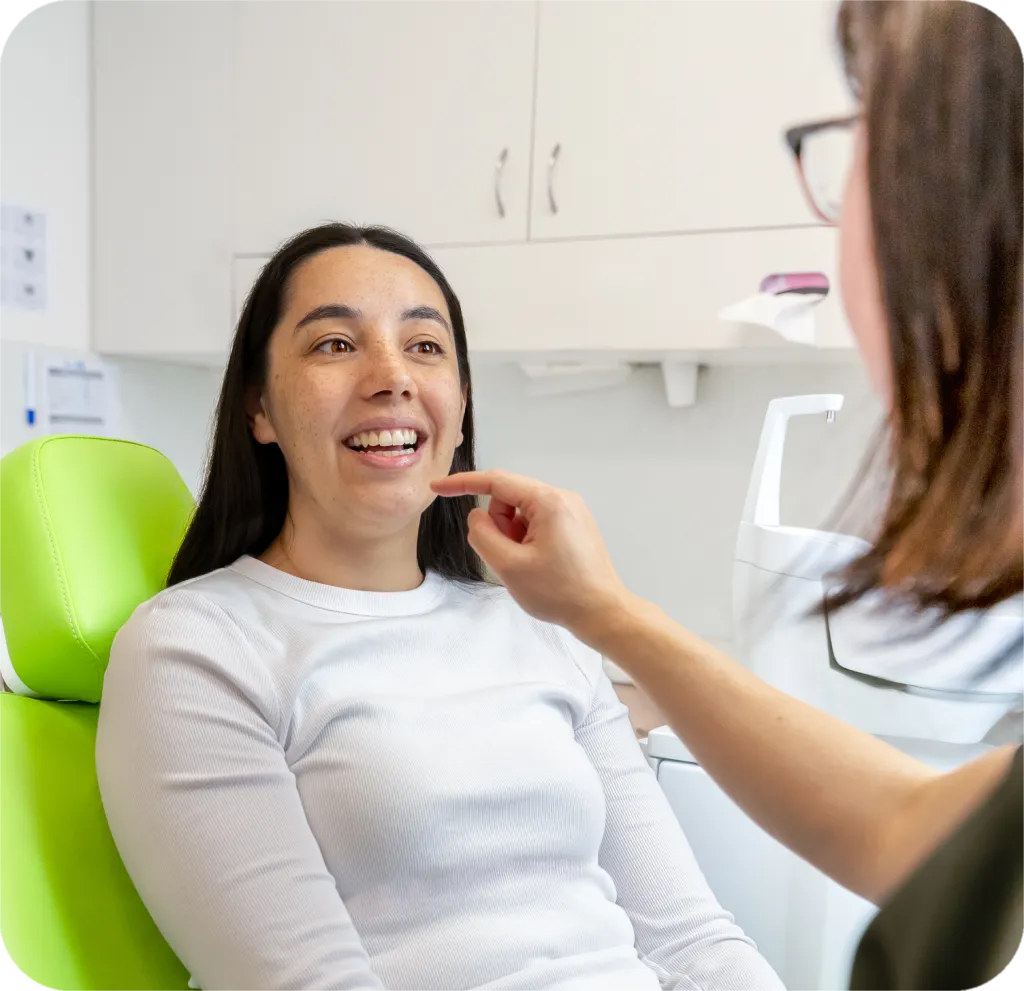At Central Dental Frankston, we prioritise preserving your natural teeth for as long as possible. However, there may be situations where extracting a tooth is the best option for your oral and overall wellbeing. In these cases, we will thoroughly discuss your options and explain every detail so you can make an informed decision about your health.
We recognise that dental procedures, especially tooth extractions, can cause anxiety for some patients. Our dentists are known for their calm and soothing approach, ensuring the entire extraction process is as comfortable as possible. Book an appointment today to experience the difference.

Wisdom teeth are the last set of molars that usually erupt during the late teens or early twenties. Their eruption can often be painful and lead to significant discomfort. It’s important to note that not all wisdom teeth require removal; only those that are impacted or causing damage to other teeth may need extraction to prevent further discomfort or complications.
At Central Dental Frankston, we are experienced in performing both simple and complex wisdom teeth removal surgeries safely and comfortably. We are equipped with 3D Xray CBCT Unit which helps with speedy diagnosis and safer extraction of wisdom teeth. Our prices for wisdom teeth extractions are competitive, and we accept private health insurance and offer flexible payment plans if needed. If you are experiencing discomfort due to your wisdom teeth or have been advised to undergo extraction, please get in touch with us.

When a tooth is lost, the supporting bone no longer serves a function and begins to deteriorate. The body repurposes these materials elsewhere. As bone diminishes, adjacent teeth can shift, leading to a misaligned bite. Additionally, a reduction in bone height can alter facial features.
Socket preservation, also known as alveolar ridge preservation, is a procedure performed after tooth extraction to maintain the bone height and volume in the area where the tooth was removed. This is important for several reasons:
Preventing Bone Loss: After a tooth is extracted, the surrounding bone can start to resorb or shrink. This bone loss can affect the overall structure and strength of the jawbone, potentially leading to changes in facial appearance and other dental issues.
Maintaining Aesthetic Appearance: Preserving the bone helps maintain the natural contours of the gums and jawline, which is crucial for a natural and aesthetically pleasing appearance, especially in the front of the mouth.
Facilitating Future Dental Procedures: Adequate bone volume is necessary for the successful placement of dental implants. Socket preservation ensures there is sufficient bone to support an implant, making future restorative procedures more predictable and successful. Adequate bone will also make dentures more comfortable and retentive.
Preventing Shifting of Adjacent Teeth: When a tooth is removed, the adjacent teeth may shift into the empty space, leading to misalignment and bite problems. Socket preservation helps maintain the space for proper alignment and function of the remaining teeth.
Improving Oral Health: Preserving the bone structure helps in maintaining overall oral health, reducing the risk of periodontal disease and other complications associated with bone loss.
At Central Dental, we use a combination of allograft, xenograft and synthetic bone and CGF (concentrated growth factor) technique, which is an advanced technique that utilises the patient’s own stem cells, platelets and growth factors, to fill the socket after tooth removal. An email details this technique has been sent to you.
For those considering dental implants to replace missing teeth, incorporating socket preservation into the treatment plan from the outset is advisable. Adequate bone volume ensures a more comfortable and predictable implant procedure.
Following a bone graft, the dental implant process typically involves:
If you need one or more teeth extracted, consider socket preservation. This proactive step can significantly impact the long-term success of your dental health, facial structure and any future implant procedures.
Please feel free to contact us if you have any questions or would like to schedule a consultation.


When indicated, almost all our surgeries use the concentrated growth factor technique. Concentrated growth factors (CGF) are the third and most recent generation of platelet substitutes established by Sacco in 2006; it is a novel concentrated platelet substance that is used to repair bony defects and enhance the success of bone grafting techniques. It is obtained from the fresh venous blood of the patient without anticoagulants through centrifugation, immediately using special centrifuge equipment.
CGF significantly reduces post operative complications such as delayed wound healing, swelling, and pain after surgical extraction.
If your functional tooth has been extracted, you might be considering a replacement such as dental implants, dental bridges or dentures to restore both function and appearance. The timing for replacement depends on your individual health circumstances and the type of prosthesis you choose.
In some cases, dental implants can be placed immediately after extraction, while others may need to wait weeks or months for the site to heal. Similarly, other options such as bridges and dentures require the extraction site to be fully healed before placement.
We will discuss your replacement options both before and after the extraction.




Central Dental Frankston acknowledges the Traditional Custodians of the land, seas and skies throughout Australia and pays respect to their Elders, past and present. In particular, we recognise their deep connection to Country and honour their knowledge and wisdom in caring for it.
© 2026 Central Dental Frankston| Privacy Policy | Terms of Use
Sign up to receive our new patient price guide.